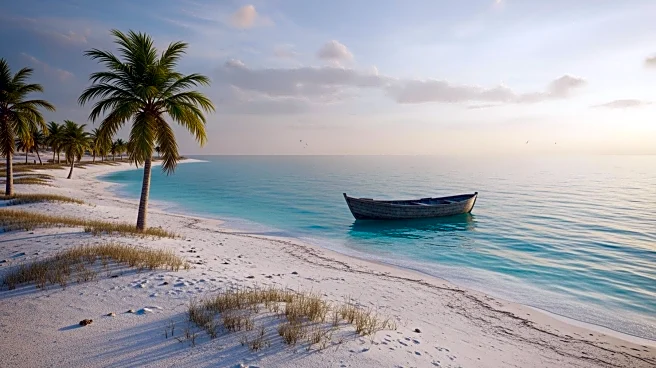What's Happening?
Tulum, a popular resort town in Mexico's Yucatán Peninsula, is experiencing a decline in tourism due to several factors, including economic uncertainty in the United States and environmental challenges
such as the accumulation of sargassum seaweed on its beaches. According to local officials and hotel owners, the amount of sargassum this year is the largest since 2018, contributing to a lower flow of visitors. The US economy, which accounts for approximately 60% of Tulum's tourists, has been affected by inflation, changes in interest rates, and a recent government shutdown, leading Americans to limit their vacations. Despite these challenges, there are signs of recovery, with hotel occupancy rates showing improvement in recent weeks.
Why It's Important?
The decline in tourism in Tulum highlights the interconnectedness of global economies and the impact of environmental issues on travel destinations. As a favorite among American tourists, Tulum's situation underscores the vulnerability of tourism-dependent economies to external factors such as economic fluctuations and environmental degradation. The town's efforts to address these challenges, including improving public safety and strategic planning for future development, are crucial for sustaining its tourism industry. The situation also reflects broader trends in the travel industry, where destinations must adapt to changing consumer preferences and external pressures to remain competitive.
What's Next?
Local officials and business leaders in Tulum are optimistic about a recovery in tourism, particularly with the upcoming 2026 FIFA World Cup, which Mexico will co-host with the US and Canada. Although Tulum is not a host city, the event is expected to attract more visitors to the region. Efforts to improve public safety and strategic planning for Tulum's development are ongoing, with a focus on enhancing tourist services and infrastructure. The establishment of a natural reserve with new environmental restrictions is part of the town's strategy to protect its beaches and attract more tourists.








